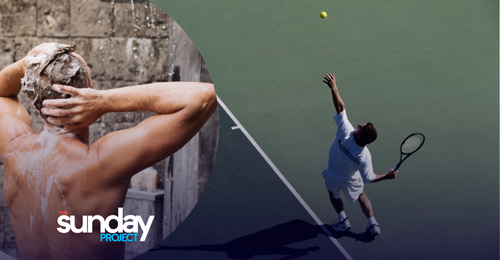The note sparked major backlash from fans online, with one saying the rules are “creepy” given that some players are teenagers.
Former player and commentator Mark Petchey said the rule is unacceptable, while Australia’s former doubles number one Rennae Stubbs said there is nothing new about the rule.
The International Tennis Integrity Agency (ITIA) has issued a statement following the social media backlash.
“We recognise that parts of the anti-doping testing process are uncomfortable,” the ITIA statement read.
“However, as with all World Anti-Doping Agency-compliant sports – not just tennis – players who are notified for a test after a match are observed at all times by an anti-doping chaperone until the test is completed.
“This is a requirement of the World Anti-Doping Code,” it read.
“The ITIA and previously the ITF have worked hard to ensure that showers following matches can amount to a permissible delay to doping control, particularly when not showering could have a detrimental effect on the health and well-being of a player,” the ITIA reminded players.
“However, showering is not an entitlement, and it is for this reason that the ITIA kindly requests that when showering, players adhere to the requirement to stay in full view of the chaperone observing them at all times.”
“If a player is not comfortable being witnessed whilst showering, we would suggest that consideration is given to whether a shower is necessary before providing a doping control sample,” the statement continued.
“Failure to remain in full view of the chaperone will be taken extremely seriously by the ITIA.”
The note comes after high-ranked players Jannik Sinner and Iga Swiatek escaped long bans for failing drug tests.
The ITIA maintains that cases are dealt with based on facts and evidence and not a player’s name, ranking or nationality.
Sinner is serving a three-month suspension that expires on May 4 after he returned two positive tests for the banned anabolic steroid clostebol last year.
The 23-year-old from Italy, who remains No.1 despite his absence, reached an agreement with the World Anti-Doping Agency after claiming he had been inadvertently contaminated while being massaged by a member of his team.
Tennis great Serena Williams told Time Magazine that she believes she would have been banned for 20 years if she tested positive.
"Fantastic personality. I love the guy, I love this game. He's great for the sport," she told Time Magazine.
"I've been put down so much, I don't want to bring anyone down. Men's tennis needs him.
"If I did that (tested positive for doping), I would have gotten 20 years. Let's be honest. I would have gotten grand slams taken away from me."





























